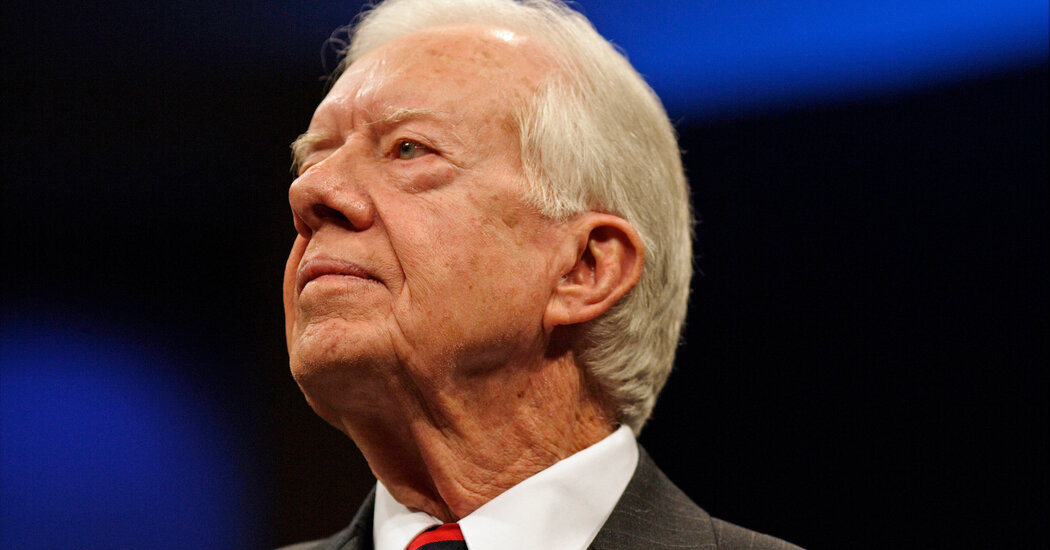

Jimmy Carter’s elevation of human rights in U.S. foreign policy offers many urgent lessons for today. Whatever challenges he faced consistently applying the principles he championed as the 39th president, he made a radical break with decades of foreign policy tradition, changed the world’s understanding of America’s aspirations, showed deep empathy for individuals who had suffered human rights abuse and, in so doing, made a lasting impact on both the United States and the world.
Much of the celebration of Mr. Carter’s legacy has centered on his groundbreaking postpresidential work. Understandably so: Beyond his tireless volunteering, working to build affordable homes with Habitat for Humanity well into his 90s, the Carter Center — his passion for the past 42 years — has worked with U.S.A.I.D. and others to nearly eliminate river blindness in the Western Hemisphere and to decrease the number of reported Guinea worm cases from more than three million per year in the mid-1980s to just 14 in 2023. Mr. Carter also changed the global understanding of what a free and fair election requires by pioneering the dispatch of diverse teams of impartial observers, which have monitored 125 elections in 40 countries. And after leaving office in 1981, he lent his mediation services to successive administrations, defusing tensions in such places as Guyana, Liberia and Sudan.
As president, his foreign policy legacy was also consequential. It includes the negotiation of the Camp David Accords, which brought about an enduring peace between Israel and Egypt, and the establishment of diplomatic relations with China (after the rapprochement begun under President Richard Nixon). Mr. Carter also negotiated the Panama Canal treaties and pushed them through the Senate, in that way removing a source of anti-American feeling in Latin America and showing that the United States, in Mr. Carter’s words, would “deal fairly and honorably” with smaller nations.
The former president’s regard for human rights was an outgrowth of his Christian faith — a faith so animating that he continued to teach Sunday school while president. He often quoted biblical passages in explaining why America had a responsibility to stand up for those being persecuted elsewhere. He quoted Jesus from Matthew 25:40: “Inasmuch as ye did it not unto one of the least of these, ye did it not to me.”
Mr. Carter’s embrace of international human rights also grew out of his commitment to civil rights at home. As he once described his childhood in Plains, Ga.: “I saw at first hand the effects of a system of deprivation of rights. I saw the courage of those who resisted that system. And finally, I saw the cleansing energies that were released when my own region of this country walked out of darkness.” He recognized that just as government enforcement was needed in order for the rights of Black Americans to be realized at home, so too government action would be needed if human rights conditions were to improve abroad.
His human rights message had broad appeal in the wake of Watergate and Vietnam, with Americans and many in Congress clamoring for ethics and decency from their leaders. Nonetheless, Mr. Carter made a far more marked departure than expected when he proclaimed in his 1977 Inaugural Address, “Because we are free, we can never be indifferent to the fate of freedom elsewhere,” and when he later defined human rights as “the soul of our foreign policy.”



